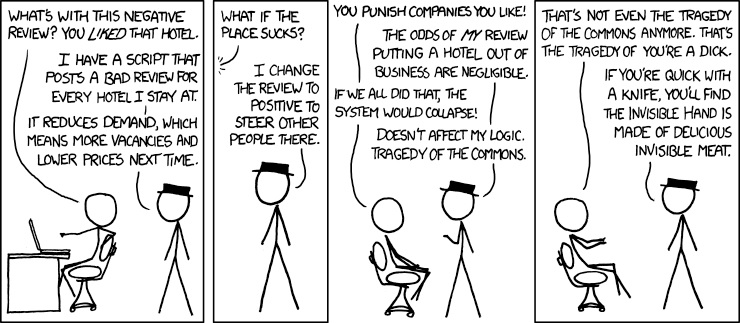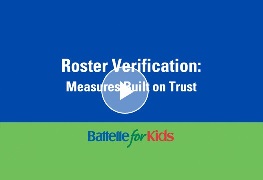We are building a religion; we are building it bigger
We are widening the corridors and adding more lanes
We are building a religion – a limited edition
We are now accepting callers for these pendant key chains
To resist it is useless – it is useless to resist it…
You can meet at his location, but you’d better come with cash
I don’t spend much time defrocking the Edu-Reform Industry. Too many others are covering that issue far better than I am likely to manage. But the Spirits of Shuffle Play keep bringing around this song*, and I can’t help but see a correlation.

You could interpret it a variety of ways, but I hear a critique of the music industry in the guise of a commentary on televangelism. I can’t shake the image of Gene Scott back in the day, cigar in hand, wearing his weird hat of the night, scolding the audience for wasting his time and not giving enough. But it’s not the music industry I think about every time it plays. It’s the other guys – the ones “saving” education…
The parallels between a well-packaged religion and an effectively marketed edu-reform movement are rather fascinating, I think.
(Now don’t get all defensive and think I’m attacking faith in general. I’m talking about the #edreform equivalent – the fake stuff with the gilded flakes. “Some of my best friends are evangelicals,” etc., so just stay with me a moment…)

1. Both offer easy answers to complex questions. The impact of a Hinn or Hagee lies partly in their utter rejection of inconsistency or uncertainty. The Great Mystery of faith is transformed into stubborn conviction regarding every interpretation, implication, or sensation.
No Jim or Tammy Faye, no Koresh or Moon, would be worth their salt if they let a little reality slow them down. Faith is the substance of things not seen, sure – but it takes a special twist to proceed from that into complete and utter denial of reality. It goes beyond a willingness to accept what you cannot prove and gives you a noble – nay, holy – foundation for ignoring even what you can.
 Behold the wisdom of Pearson and its ilk. They’re not out to win an argument – they’re offering to scratch an itch, to meet an apparent need. They have easy answers – textbooks which work in any state that’s not Texas, assessments which, because they’re online, somehow guarantee students have entered modernity, and suites of ancillaries, strategies, terminologies, and priorities.
Behold the wisdom of Pearson and its ilk. They’re not out to win an argument – they’re offering to scratch an itch, to meet an apparent need. They have easy answers – textbooks which work in any state that’s not Texas, assessments which, because they’re online, somehow guarantee students have entered modernity, and suites of ancillaries, strategies, terminologies, and priorities.
It saves so much time compared to wading through specific student abilities or needs, and if you order today they’ll throw in a new sense of progressive identity and an assortment of Twitter-ready platitudes.
We are building a religion; we are making a brand
We’re the only ones to turn to when your castles turn to sand
Take a bite of this apple, Mr. Corporate Events
Take a walk through the jungle of cardboard shanties and tents
2. Both institutionalize things traditionally built on relationships. A good mega-church or movement has mastered its marketing, its placement, its packaging and branding, so that content itself is almost secondary – like the perfume in the bottle. Members are guided in what to profess more than what to believe, and as with any corporately controlled environment, dissent is discouraged despite token mechanisms in place to accommodate “suggestions” or complaints.
A faith founded on walking around talking to people, helping them out, even staying in their homes as you invest in their souls, is neatly packaged and shrink-wrapped into broadcasts, books, CDs, and playbooks for those who wish to move up the pyramid – Amway for the soul. It speaks of relationships but it markets systems.
It’s efficient. Cost effective. Economies of scale.
 Edu-Reform talks incessantly of individualizing learning and teachers being the most important factor in the classroom, but allows for no such nonsense in practice. Every “solution” or “tool” requires a purchase order and a follow-up email suggesting scaffolds and assessments, available today at an introductory rate.
Edu-Reform talks incessantly of individualizing learning and teachers being the most important factor in the classroom, but allows for no such nonsense in practice. Every “solution” or “tool” requires a purchase order and a follow-up email suggesting scaffolds and assessments, available today at an introductory rate.
Any teaching method not consuming product is belittled and dismissed until those still practicing such things do so in shadows and shame. Classroom priorities not easily assessed are elevated in lip service while discarded in fact – at least if you want to survive evals. The Curmudgucation sticker on your keyboard or the Jose Vinson book on your shelf become clues to your heresy – an Ichthus fish for edu-bloggers.
He says, “Now do you believe in the one big song?”
He’s now accepting callers who would like to sing along
There’s no need to ask directions if you ever lose your mind
We’re behind you, we’re behind you – and let us please remind you
We can send a car to find you if you ever lose your way…
3. Both choose language which obfuscates rather than enlightens. The statement that kids aren’t all the same is difficult to refute, so they don’t. Instead, all children are capable. All kids can learn. All students should be equally prepared to function in an increasingly global economy and culture.
 All of these are true in and of themselves, but are used to collectively imply that all teachers and all students should be on the same page of the same guidebook on the same day, regardless of background, ability, or interests – that is, if you believe that children are the future, and teach them well by feeding them the way…
All of these are true in and of themselves, but are used to collectively imply that all teachers and all students should be on the same page of the same guidebook on the same day, regardless of background, ability, or interests – that is, if you believe that children are the future, and teach them well by feeding them the way…
One man’s “oversimplified” is another’s “firm convictions.” And on a similar note…
4. Both bring the feels. “Higher standards” is the new “Holy Holy Holy,” the edu-quivalent of “Our Test is an Awesome Test, it’s scored with Rub-uh-rics! It’s yours, when you join PARCC – Our Test is an Awesome Test…”
 The power of manipulative rhetoric is in how it sounds and makes you feel rather than what it means – if it means anything. “Highly qualified” instructors “adding value”, focusing on “skills” and “inquiry” and “student-driven {insert anything here}” – are your ideals tingling?
The power of manipulative rhetoric is in how it sounds and makes you feel rather than what it means – if it means anything. “Highly qualified” instructors “adding value”, focusing on “skills” and “inquiry” and “student-driven {insert anything here}” – are your ideals tingling?
I can feel nobler by taking a clearly marked path? The Grand Inquisitor would be proud.
Feelings are stronger than thoughts, and neither Pearson nor politicians worry about the latter when the former will do. Elected leaders or successful entrepreneurs are granted all the feels they can feel and all the rhetoric they can rhetor by simply joining the right conglomerate, writing the right check, and attaching the proper strings. It’s how we run wars, how we build cities, and how most policy is written. It doesn’t sound insane to them the way it does outside the Bicameral Halls of Cynicism and Delusion.
5. Both target effectively. Religious charlatans aren’t overly concerned with co-opting the truly devout – that’s not their demographic. They gently but firmly excommunicate them, either openly condemning or crocodile mourning their refusal to see ‘the light.’
Ed-Reformers aren’t overly concerned with winning over real teachers. They don’t need to. Most couldn’t if they cared to try. Instead, excommunication comes via the narrative of “failed teachers” protected by “entrenched unions.” Teachers resistant to bad ideas are “afraid of change” and hostile towards a little “accountability.”
(No wonder they won’t wear the t-shirts we passed out at the conference.)
6. Both come with pretty high stakes based on questionable standards. Need I elaborate?
7. Both are most successful when least successful.
You can build bigger churches and sell more books, but you can’t upscale a faith based on intimate relationship with the Almighty. It is by its very nature personalized and individual.
You can mass produce books, and tests, and videos, and propaganda. You can mass distribute media materials and multiply social media mouthpieces. You can create the illusion you are improving public education through the sheer scale of standardizing and branding it all.
But you can’t mass produce teaching. You can’t scale up the essential relationships, perceptions, guesses and decisions that go into any successful classroom. You can’t make kids or their teachers standard-enough to generalize about them or how they should be interacting. It just doesn’t work.
You can maintain the facade, but the substance is lost. And what shall it profit a reformer to gain the whole edu-world…?
We are building a religion; we are building it bigger
We are building a religion – a limited edition
We are now accepting callers for these beautiful pendant key chains…
* “Comfort Eagle” from the album Comfort Eagle by Cake
Related Post: Condemnation Bias
Related Post: Hole in the Wall Education
Related Post: If I Were A Conspiracy Guy
Related Post: No Profit Left Behind (from Politico.com)



 In the more confined example of the Table for Twelve who’ve decided to each pay their own way, inevitably someone will lack sufficient cash to buy their entrée. They may have enough for an appetizer, but as they return to work slightly less-nourished than their peers, they will produce less – and the next visit to the restaurant may find them ordering a glass of water, no lemon, and swiping a few breadsticks from their cohorts.
In the more confined example of the Table for Twelve who’ve decided to each pay their own way, inevitably someone will lack sufficient cash to buy their entrée. They may have enough for an appetizer, but as they return to work slightly less-nourished than their peers, they will produce less – and the next visit to the restaurant may find them ordering a glass of water, no lemon, and swiping a few breadsticks from their cohorts. Add a more explicit financial element, and the impetus for avarice and corruption is almost irresistible. Laws can attempt to herd in certain behaviors, but can never eliminate them – and can certainly never do so equitably or effectively. Prohibition is only the most glaring example of men working the system for personal gain and the unintended consequences of government ‘help’. Think tax code, or health care, or military bases, or college scholarships.
Add a more explicit financial element, and the impetus for avarice and corruption is almost irresistible. Laws can attempt to herd in certain behaviors, but can never eliminate them – and can certainly never do so equitably or effectively. Prohibition is only the most glaring example of men working the system for personal gain and the unintended consequences of government ‘help’. Think tax code, or health care, or military bases, or college scholarships. There’s no motivation to take less, you see – the system is in fact weighted to encourage each and every player to get all they can as quickly as they can, or another player will. There’s no such thing as ‘results’ in the Tragedy of the Commons, but if there were, we’d find that what claims to be a measuring sticks turn out to be more like a lawn mower.
There’s no motivation to take less, you see – the system is in fact weighted to encourage each and every player to get all they can as quickly as they can, or another player will. There’s no such thing as ‘results’ in the Tragedy of the Commons, but if there were, we’d find that what claims to be a measuring sticks turn out to be more like a lawn mower.



 Every year came the ‘ring assembly’. National company, glossy brochures, and a thousand students held captive to their insistence that EVERYONE regardless of background, want, or financial circumstances, could and should go deeply into debt for the unequalled splendor of class ringdom.
Every year came the ‘ring assembly’. National company, glossy brochures, and a thousand students held captive to their insistence that EVERYONE regardless of background, want, or financial circumstances, could and should go deeply into debt for the unequalled splendor of class ringdom. 


 Note: After
Note: After  I don’t even teach a tested subject this year. State law as it stands this week (it’s been rather flaky lately, so who knows what 30 days from now might bring?) says I can pretty much make up my own standards for VAM in my department, while my friends down in the Math & Science halls are tied to tests already taken and cut scores which are determined by random rolls of leftover D&D dice sometime in July.
I don’t even teach a tested subject this year. State law as it stands this week (it’s been rather flaky lately, so who knows what 30 days from now might bring?) says I can pretty much make up my own standards for VAM in my department, while my friends down in the Math & Science halls are tied to tests already taken and cut scores which are determined by random rolls of leftover D&D dice sometime in July.  This is wrong – this electronic tying of each teacher to each kid based solely on who’s on your grade book at a given point. It doesn’t matter that I have upper middle class white Methodists from two-parent families who only miss school for golf or family vacations to Europe, while the guy next to me has kids suspended so often he has more class admit forms than completed assignments.
This is wrong – this electronic tying of each teacher to each kid based solely on who’s on your grade book at a given point. It doesn’t matter that I have upper middle class white Methodists from two-parent families who only miss school for golf or family vacations to Europe, while the guy next to me has kids suspended so often he has more class admit forms than completed assignments.  Which is the opposite of what I teach my kids all year. It’s the antithesis of that stuff that helps maintain the thin illusion that anything we’re doing here matters, or has value, or could change anything. “Don’t rock the boat – it won’t help!” That should replace the other posters in my classroom for the last two weeks. Just sit in the back of the damn bus. Just finish the wire transfer from the hidden account. Just ignore the policies that maintain poverty for political gain, or segregation for social stability. Just walk past the problem.
Which is the opposite of what I teach my kids all year. It’s the antithesis of that stuff that helps maintain the thin illusion that anything we’re doing here matters, or has value, or could change anything. “Don’t rock the boat – it won’t help!” That should replace the other posters in my classroom for the last two weeks. Just sit in the back of the damn bus. Just finish the wire transfer from the hidden account. Just ignore the policies that maintain poverty for political gain, or segregation for social stability. Just walk past the problem. I have students coming in 15 minutes, and we should be discussing what we’ve read so far in The Grapes of Wrath. I’d meant to talk about “Joe Davis’s boy,” who drives the tractor that’s tearing up their land and down their homes, and I’ll ask them whether he’s part of the problem or not.
I have students coming in 15 minutes, and we should be discussing what we’ve read so far in The Grapes of Wrath. I’d meant to talk about “Joe Davis’s boy,” who drives the tractor that’s tearing up their land and down their homes, and I’ll ask them whether he’s part of the problem or not. We still hear from time to time that public schools could learn a few things from successful private businesses. If so, why not Chipotle Mexican Grill?
We still hear from time to time that public schools could learn a few things from successful private businesses. If so, why not Chipotle Mexican Grill? But what Steve Ells did is pretty amazing. He started small, tried different formats, swapped out a few ingredients, then reproduced the most successful combination on a large scale. All the benefits of sit-down dining and the economies of scale normally found in eating establishments represented by cartoon characters or creepy plastic-headed men. It’s a charter school movement dream come true!
But what Steve Ells did is pretty amazing. He started small, tried different formats, swapped out a few ingredients, then reproduced the most successful combination on a large scale. All the benefits of sit-down dining and the economies of scale normally found in eating establishments represented by cartoon characters or creepy plastic-headed men. It’s a charter school movement dream come true! Employees at Chipotle will be held to higher standards than currently the norm. Customers will undergo regular physicals, including checks of their weight, blood pressure, cholesterol, stamina, heart-rate, and anything else we can think of – including whatever might be trending that year. Locations unable to demonstrate consistent weight-loss and fitness-gain will face staff reductions and reduced ingredients until they improve.
Employees at Chipotle will be held to higher standards than currently the norm. Customers will undergo regular physicals, including checks of their weight, blood pressure, cholesterol, stamina, heart-rate, and anything else we can think of – including whatever might be trending that year. Locations unable to demonstrate consistent weight-loss and fitness-gain will face staff reductions and reduced ingredients until they improve.  A percentage of resources currently poured into running the various Chipotle Mexican Grills around the country will be redirected to a bureaucracy responsible for overseeing these things. These sundry minions’ expertise will be based largely on them having eaten at a Chipotle at some point, or if not, having eaten somewhere else at some point in their lives.
A percentage of resources currently poured into running the various Chipotle Mexican Grills around the country will be redirected to a bureaucracy responsible for overseeing these things. These sundry minions’ expertise will be based largely on them having eaten at a Chipotle at some point, or if not, having eaten somewhere else at some point in their lives.